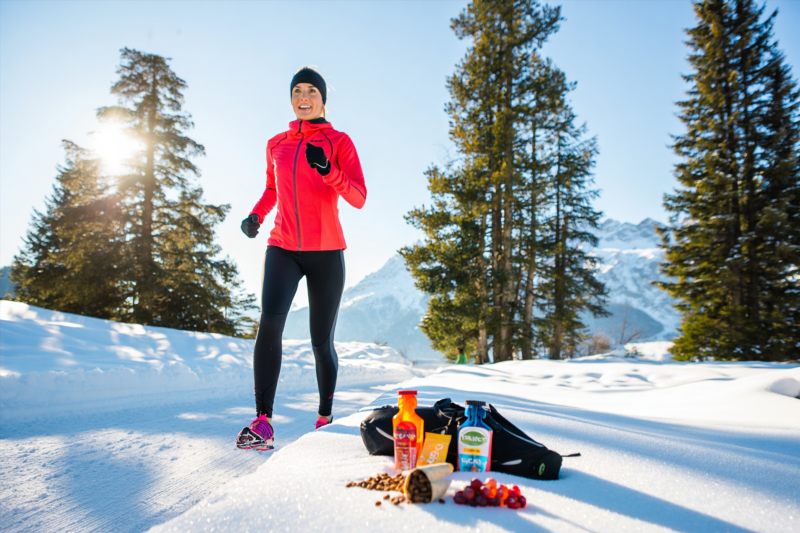Winter endurance athletes face unique challenges that require meticulous attention to their nutritional intake. From chilly temperatures to increased energy demands, fueling your body correctly can be the decisive factor between a disappointing performance and a triumphant race. Whether you’re crossing country ski trails or conquering winter mountain trails, understanding the best nutrition strategies is crucial to boosting your winter performance, maintaining stamina, and enjoying the snow to its fullest.
In this comprehensive guide, we delve into scientifically backed nutritional tactics tailored for winter athletes. You’ll learn how to optimize your diet, stay energized, recover faster, and ultimately amplify your endurance during the colder months.
Why Proper Nutrition Is Critical for Winter Athletes
The Unique Demands of Winter Endurance Sports
Winter sports, including cross-country skiing and snowboarding, impose special physiological and nutritional demands:
- Increased caloric expenditure: Cold weather causes your body to burn more calories to maintain core temperature.
- Hydration challenges: Cold temperatures often suppress the sensation of thirst, risking dehydration.
- Energy management: Prolonged exertion in chilly conditions rapidly depletes glycogen stores.
Consequences of Poor Nutrition in Cold Seasons
- Reduced stamina and endurance
- Slower recovery times
- Increased injury risk
- Suppressed immunity
Hence, strategic nutrition becomes the backbone of your winter athletic routine.
Key Nutrition Strategies to Boost Winter Performance
1. Prioritize Energy-Dense Carbohydrates
Carbohydrates are the primary fuel source for endurance activities. During winter, optimize your carbohydrate intake to sustain energy levels:
- Complex carbs: Oats, sweet potatoes, whole-grain bread, and brown rice provide sustained energy.
- Simple carbs: Fruits like bananas and berries help quickly replenish glycogen post-activity or during longer events.
Tip: Aim for a carbohydrate-rich meal 2-3 hours before activity and include easily digestible snacks like energy gels or dried fruit during prolonged sessions.
2. Incorporate Healthy Fats for Longevity and Recovery
Fats provide concentrated energy, aid in vitamin absorption, and support immune health:
- Sources: Avocado, nuts, seeds, olive oil, and fatty fish like salmon.
- Benefit: They help sustain endurance, especially during multi-hour winter workouts.
3. Ensure Adequate Protein Intake for Repair and Recovery
Protein is essential for muscle repair, especially after intensive sessions:
- Sources: Lean meats, poultry, eggs, dairy, beans, and plant-based proteins.
- Suggestion: Consume a moderate amount (15-25 grams) of high-quality protein within 30 minutes after exercise to optimize recovery.
4. Stay Hydrated Despite Cold Temperatures
Cold weather can mask dehydration signals:
- Strategies:
- Regularly sip water or electrolyte-rich drinks.
- Consume warm fluids like herbal teas or broth to boost hydration and core warmth.
- Include foods with high water content, e.g., soups and fruits.
5. Add Electrolytes for Cold-Weather Balance
Sweat loss in winter often leads to electrolyte imbalances:
- Electrolyte sources: Sports drinks, nuts, seeds, and seaweed.
- Why: Maintaining electrolyte balance supports muscle function and prevents cramps.
6. Maintain Micronutrient Balance to Strengthen Immunity
Cold seasons increase susceptibility to illness:
- Vitamins: Vitamin D (sunlight deficiency), C, and zinc.
- Minerals: Iron (for oxygen transport), magnesium, and selenium.
Opt for supplementation if necessary, especially in low sunlight months.
Practical Tips for Nutrition During Winter Training
| Tip | Explanation |
| Meal Timing | Eat balanced meals 2-3 hours before exercise, with quick snacks during longer activity. |
| Portable Snacks | Carry energy gels, nuts, dried fruits, or energy bars for on-the-go fueling. |
| Warm Up with Nutrition | Warm beverages or hot soups pre-activity to promote warmth and hydration. |
| Post-Workout Recovery | Incorporate protein-rich foods and carbs promptly after training. |
FAQs About Winter Nutrition for Athletes
Q: How can I prevent dehydration in cold weather?
A: Sip fluids regularly, even if you don’t feel thirsty. Incorporate warm drinks and foods with high water content to promote hydration and comfort.
Q: Should I adjust my calorie intake during winter?
A: Yes. Cold temperatures increase caloric needs. Focus on energy-dense foods to compensate for higher energy expenditure.
Q: Are supplements necessary during winter training?
A: Typically, a well-rounded diet suffices. However, vitamin D and electrolyte supplements can be beneficial, especially if sunlight exposure is limited.
Q: How can I prevent winter-specific nutritional deficiencies?
A: Prioritize foods rich in vitamins D, C, zinc, and iron, or consider supplements after consulting with a healthcare professional.
Staying energized and enhancing performance during winter requires a thoughtful approach to nutrition. Prioritize carbohydrate and healthy fat intake, ensure proper hydration, and pay attention to micronutrient needs to keep your body resilient against the cold and maximize endurance.
By integrating these proven nutritional strategies into your training routine, you’ll experience improved stamina, quicker recovery, and a deeper enjoyment of those pristine winter snow trails. Embrace winter sports with the right fuel—your performance and enjoyment depend on it.
Take Action Now
Ready to elevate your winter performance? Start by reviewing your current diet and implementing these key nutritional tips today. Stock your gear with portable snacks, plan balanced meals around your training schedule, and don’t forget to hydrate properly. Your optimal winter performance awaits.
